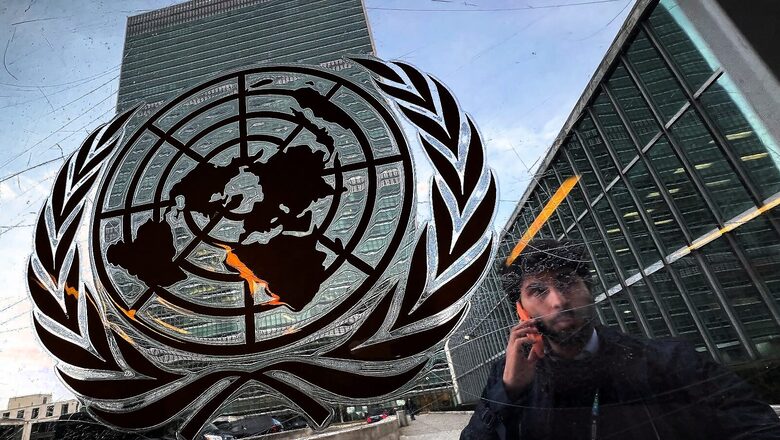
views
The recent New York Times investigative article from May 8th (“A Pot of U.N. Money. Risk Taking Officials. A Sea of Questions”) reads like a movie script. It has it all – incompetence, mismanagement, fraud, a party, actually multiple parties and missing $61 million dollars. In the article, the head of the agency, United Nations Office for Project Services (UNOPS) proudly claims, “upon my arrival, I tossed more than 1,200 pages of rules into garbage” and her deputy describes himself as a “serial overachiever” on Linkedin. With no rules in place, the head of UNOPS granted $61 million worth of loans to one British family, $3 million of that was for a song to promote the environment. This story reflects the deal-making and rule-breaking that happens behind the scenes at the UN. Hours after the article was posted, immediate action was taken and the UN Secretary-General fired the person most responsible and the governing bodies made promises of change. To anyone not from the UN, this might seem like a movie where justice was served and served rather swiftly. But to the UN insiders, we have seen this movie before. Many times, in fact.
We saw this in 2004 when the Wall Street Journal broke the story on the abuses and corruption in “The Oil-for-Food Scandal”. The result of that article: the then UN Secretary-General and governing bodies reacted with outrage and victimhood. They promised reforms, investigations, and the gamut of usual menu items when bureaucrats are caught with their hand in the cookie jar. We saw this again in 2015 when the UN peacekeepers sexual abuse scandal was first reported in the media. The response from officials was shock, despair, reforms, and zero tolerance for abuse campaigns. And yet here were are, according to a UN press release from March 2022, sexual abuse cases are on the rise and have been for many years. This time the Secretary-General promised “a NEW system-wide strategy”. Promises, but no real change, is a theme here.
After this most recent scandal, a UN staffer wrote to me and said, “What a crazy story!” I responded, “What’s crazy to me is not the story in of itself, but the shock and victimhood portrayed by the Secretary-General and governing bodies for not knowing about this earlier.” How could they not have known about this earlier? The facts behind The New York Times May 8th article were first mentioned in the U.N. audit report in 2018. And each year since. In March 2022, the blog of a former UN staffer exposed the corruption. In April 2022, Devex did a detailed investigative piece on this matter. Yet, until The New York Times reported on it, the Secretary-General and Governing bodies did not care to react. We saw similar behavior in 2021 when articles were published in a UN publication, PassBlue, about the Secretary-General’s office being aware of sexual abuse complaints of one of his key staff members. Yet, there was no action or reaction from him in fact he promoted this staff in question in Jan 2021. The Secretary-General was forced to fire this individual only after the New York Times and Politico reported on it.
It’s profoundly upsetting that the threshold for the Secretary-General and Governing bodies to take action is an expose in a major publication. It goes beyond upsetting to almost criminal when the actions taken are merely performative. Despite the very real victims and desperate need for change, after each scandal, the reactions are the same. Someone is fired, reforms are promised, a commission is created to investigate, and a writer reports. Why haven’t we realized that reforms by report don’t work? The reason reforms by report don’t work is because we keep addressing the symptoms, and not the underlying cause— the culture of the UN. The culture of impunity towards leaders and retaliation towards employees who speak up.
The two are connected. Leaders know they won’t be punished or fired for wrongdoings. And employees who speak up know they will be. We have whistleblower policies but time and again when any employee speaks up, the U.N. fires them. The Secretary-General and governing bodies ignore the pleas of these employees whose honesty and courage cost them their job. An example, in 2021, John O’Brien, my former colleague from UNDP reported a specific case of fraud on $10 million worth of Global Environment Fund projects in Russia. The investigation into the Global Environment Fund scandal at UNDP relieved total misappropriated funds of $100 million. For John’s honesty was fired by the UN. John reached out to the Secretary-General to the Governing bodies to inform them of this injustice. What did they do? Nothing. Did the Secretary-General or governing bodies take any action against the leader of UNDP, Mr. Achim Stiner. No. Did the countries stop donating to this agency? No.
Like I said, unless a major publication reports on this, the Secretary-General and the governing bodies don’t feel the need to react.
The UN is very complicated and complex. But parts of it that deal with operations and implementing the decisions of the governing bodies should be simple and straightforward. The reason why countless reforms have not worked in the past is because the reform process is not inclusive and transparent, where stakeholders such as the civil society and most importantly employees of the UN should be invited to participate. The employees who deal with these issues day in and day out have all the solutions, but are never given a seat at the table to discuss. If this reform does not want to be a reshuffle like previous reforms, I urge the Secretary-General to make it an open process with employees being given a key role in drafting the reform.
Operational matters aside, the most pressing question here is, is the UN of today becoming irrelevant? The unfolding Russia-Ukraine war and the looming nuclear war threat cannot be ignored. A body like the UN is very much needed now to address the pressing issues of peace and security, inequality, and climate change. That body is in limbo because of poor leadership and structural impediments. The structural impediments of veto power in the U.N. the Security Council needs to be immediately addressed. We need a Security Council that is not just a showpiece, but that actually does something. One way forward is to surrender veto power. If the US and its allies truly want world peace, they must surrender the abusing veto authority they currently have. 188 of the 193 countries in the UN support a democratic Security Council with no veto power. Another way, which has been promoted by India is expansion of the veto to include other nations. None of these reforms have been enacted yet. The time for meaningful UN reforms is now, unless the UN wants to die a death of irrelevancy like its successor, the League of Nations.
Akanksha Arora was UN Secretary-General Candidate 2021. Over her five years at the UN she has worked in the finance, budget and audit functions of various UN entities and is a subject matter expert on UN financing and operations. The views expressed in this article are those of the author and do not represent the stand of this publication.
Read all the Latest Opinions here



















Comments
0 comment